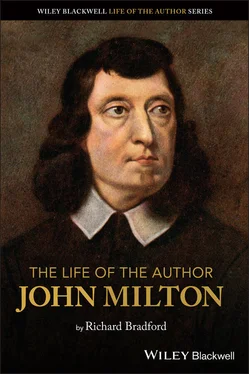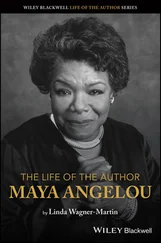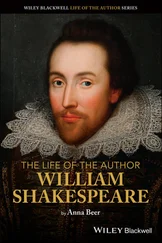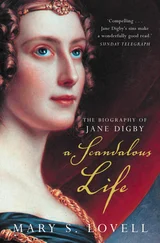The influence of these events upon Milton’s beliefs and the course of his life was immense. From his first days at school to his declining years during the Restoration he found himself at the centre of a whirlwind of savagely divided opinions on every aspect of the human condition, from how our faith determined our private demeanour to whether Kingship or radical republicanism carried the sanction of God. Some, for the sake of their safety and sanity, might have maintained the lowest possible profile, entering the storm only when obliged to do so. Milton, though never an inflexible zealot, devoted his existence to the defence of what he believed was both God’s will and the common-good of his countrymen. Opinions on his political and religious views will continue to differ but no-one would dispute that his turmoils bequeathed us some of the finest poems ever written.
Arminianist theology did not become the foundation of a particular religious sect or political grouping; rather, it indicates the inherent tensions within the broad spectrum of Protestantism and late Renaissance intellectual life. On the one hand, Calvinism replaced attendance to Papal doctrine with an empiricist reading of scripture, while at the same time its findings appeared to impose restrictions upon interpretive freedom and the fundamental notion of the believer as a self-determining individual – Arminius reacted against the latter and these doctrinal divisions would be re-enacted within the religious/political fabric of England during the Civil War and its aftermath. Milton’s relationship with Arminianism is important because it operates as an index to his position within and responses to the complex factionalism of English political and religious life. For example, the term Independents is applied to a large number of prominent individuals of the Parliamentarian cause, Cromwell included. Independency advocated an early version of the modern concept of freedom of the individual, arguing that within the institution of the Protestant Church certain particulars of belief should be left to the scrutiny and choice of the particular worshipper. Independency could be regarded as an enactment of Arminianist doctrine, in that both emphasise the importance of choice and self-determination in individual’s dealings with religious practice. This went against the regimen of the Presbyterian Church, one of the most powerful and influential elements of the Parliamentarian cause. Presbyterianism, originating mainly in Scotland, was organised Calvinism. As an institution it was radical – it rejected the hierarchical Anglican structure of bishops for example – yet authoritarian in that it imposed upon members of its congregation theological ordinances just as unbending as those of the Catholics. As we shall see, the conflicts between Presbyterianism, organised religion, and the Independents were continuous during the late 1640s and early 1650s, when the victorious Parliamentarians were restructuring the civic, political and religious fabric of England. Milton, in his early years, sometimes allied himself with aspects of the Calvinist-Presbyterian cause – this was the most emphatically anti-Catholic grouping in Britain – but as he began to establish his reputation as a pamphleteer on religious and political issues and eventually became a civil servant in the English republic, he shifted his allegiance to the Independents, the advocates of theological individualism, free speech and free will. Sometimes Milton would attack Arminianism (see Areopagitica , WJM , p. 313), not so much as a doctrine in its own right but because it had occasionally, and paradoxically, been adopted by Royalist High Anglicans often as a wedge to further divide the factional constituency of radical Protestantism. Laud, Charles I’s notoriously conservative Archbishop of Canterbury was an advocate of Arminianisn but this was more a political tactic than a genuine conviction. He wished to alienate the Presbyterians.
Like many codes of belief, religious and secular, which treat the relation between the conscience of the individual and institutionalised structure in a dialectical, potentially ambiguous manner, Arminianism was attractive to otherwise radically opposed parties. In essence, however, it promoted free choice and singularity, and for this reason in much of his later writing Milton supported it (see ‘The Ready and Easy Way to Establish a free Commonwealth’, 1660, WJM , p. 366 and Of True Religion …, 1673, WJM , p. 168). His two most radical and controversial works, the prose tract De Doctrina Christiana and the poem Paradise Lost are treated by all commentators as sympathetic to Arminianism: the latter foregrounds the tension between free will and doctrinal obligation by situating it in the lives, thoughts and actions of the two original human beings.
It is certain that even as a child Milton would have become aware of the tensions and polarities of belief that informed all aspects of English politics and religious affiliation. Young, his pre-school tutor, had come to London in the wake of James I’s succession to the English throne and would in 1620 take up the post of Pastor of the English church in Hamburg. Young’s life in Scotland and his move to Hamburg reflected his Calvinist convictions, and his pupil’s lessons in Greek, Latin and Hebrew would have been invested with rather more than a disinterested respect for classical scholarship. Richard Stock, the rector of Milton’s parish church, All Hallows, was a Puritan whose Sunday sermons regularly involved the lambasting of Jesuits as the army of Satan and the Pope as their general. Stock had already attained a degree of public notoriety by writing a book in which he claimed that the lax, indulgent nature of the reign of James I had encouraged the return of subversive Papist activists to English life ( A Sermon Preached at Paules Crosse , 1609). It was licensed for publication two days before John Milton was born. The high master of St Paul’s School, Alexander Gill, the surmaster, William Sound and under usher, Alexander Gill junior, all belonged to the more radical wing of the Church of England, and while St Paul’s was famous for its emphasis upon classical literature as the bedrock of learning, the writings of Virgil, Cicero, Horace, Homer and Juvenal would all have been examined through the lens of contemporaneous religious doctrine. At St Paul’s Milton met Charles Diodati, a boy of his own age who would remain one of his closest friends, and Diodati would have informed him of his family history: his father, a physician, had first been exiled from his native Italy because of his Protestantism, had lived for a while in Geneva, the home of Calvinism, and then moved north to practise his profession in a city, London, in which his religious beliefs would be sympathetically treated: his uncle, Giovanni, had stayed in Geneva to become an influential and controversial theologian, of the Calvinist persuasion.
We cannot be certain of the way the young Milton responded to his early encounters with the prevailing conflicts of the period, but if the writings of the adult are an extension of the inclinations of the child he did not submit to indoctrination. He would throughout his life remain a radical Protestant, but Milton’s radicalism was of the non-peremptory, undogmatic kind. The features of Calvinism that corresponded most with his temperament were the concepts of individualism and free will, God’s generous allocation to his fallen species of the opportunity to speculate on the nature of absolute truth before accepting a pre-formed actuality.
At St Paul’s an attainment of competence in Greek and Latin was regarded as of equal importance as a pupil’s mastery of his native English, and a knowledge of the poetic conventions of all three languages was ranked almost as highly as a command of their grammar. Pupils were asked to write poems, not as vehicles for expressive creativity but as exercises of self-discipline; a practical awareness of metre and figurative devices inculcated a greater understanding of linguistic operations per se. This ranking of poetry as an intrinsic feature of language, rather than as a self-conscious excursion from its ordinary uses, reflects its broader status within Renaissance culture. Gill senior was a quintessential Renaissance schoolteacher in that he treated Greek, Latin and English as living languages whose interrelationships were mutually productive. He informed his pupils of the relative qualities of contemporary English poets, of how they had adapted, transformed and extended the precedents set by their classical precursors: Spenser was ‘our Homer’, Sidney was the English Anacreon, Samuel Daniel the modern Lucan and John Harington the Elizabethan Martial (Shakespeare, as a playwright, was in Gill’s opinion a little too populist for serious scrutiny; see Parker, 1968, p. 14).
Читать дальше












